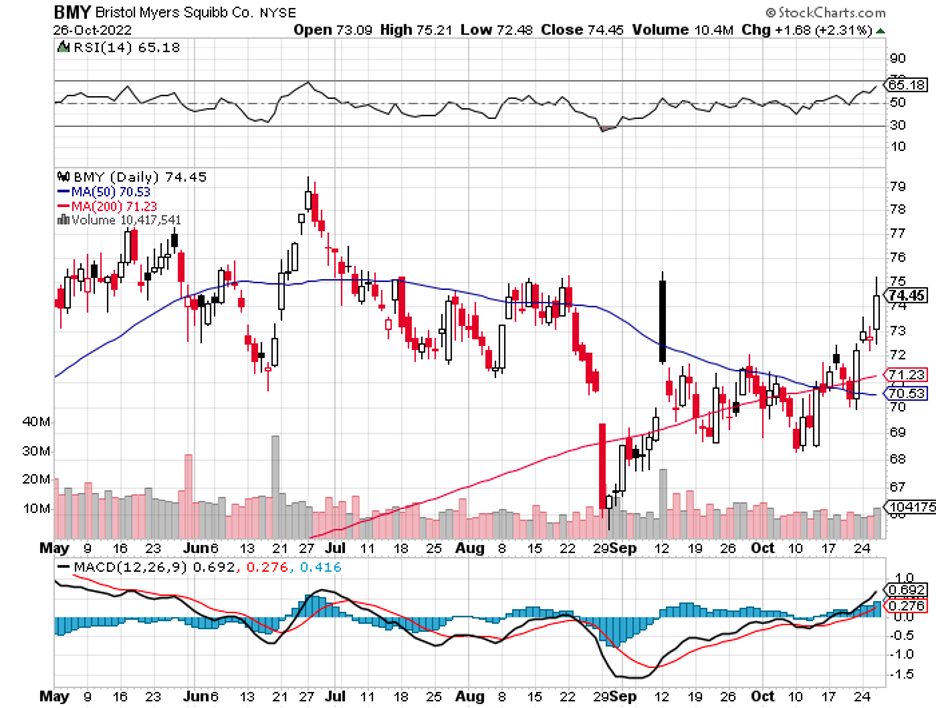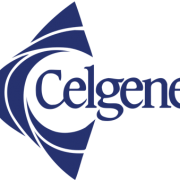A Hidden Treasure In These Turbulent Times
Biotechnology and healthcare companies are not exactly the thrilling investments that tech stocks or other growth-centered businesses tend to be described as.
Nonetheless, one of the reasons I find this sector attractive is that the companies can offer steady growth in extensively diverse markets.
From biopharmaceutical treatments to household items, the products these businesses develop are the kinds people tend to need and use regularly constantly.
While the biotechnology and healthcare sector doesn’t always beat the general market, the combo of steady growth, resilient returns, and reliable dividends generally make it an incredibly attractive option for investors.
Among the companies in this segment, one of the names you can buy and hold in the long run is Bristol Myers Squibb (BMY).
BMY is hailed as the seventh-biggest biopharmaceutical company across the globe in terms of sales. In 2021, the business recorded $46.4 billion in total revenue, which was up by 9% from 2020.
More than half of BMY’s revenue last year was generated from sales of three of its best-selling treatments: multiple myeloma drug Revlimid, Eliquis, and cancer treatment Opdivo.
The full-year revenue for all three drugs jumped that year, with Revlimid climbing by 6% to reach $12.8 billion, blood thinning medication Eliquis rising by 17% to hit $10.8 billion, and Opdivo increasing by 8% to record $7.5 billion.
Despite the impressive performance of these top-selling products, BMY has been diversifying its portfolio to cover a vast lineup of candidates in the fields of immunology, hematology, and, of course, oncology.
The healthcare giant has also grown, in part, through acquisitions, and part of its 2021 revenue of $46 billion, which was twice more than its 2018 revenue of $23 billion, came from these efforts. Moreover, BMY has reported a free cash flow of roughly $13 billion for two consecutive years.
In 2022, BMY reported a lackluster third-quarter performance. While the company’s revenue slid by 3% to $11.2 billion, the stock still climbed 2.31%.
This could be attributed to the fact that BMY managed to beat expectations as analysts predicted a more significant drop due to foreign exchange impacts.
Aside from these, Revlimid has been dealing with increased competition worldwide in the past months. Specifically, this bone marrow cancer drug has been facing “generic erosion” thanks to the emergence of cheaper alternatives in the market.
Picking up the slack from Revlimid is Eliquis, which has become the company’s top performer in terms of revenue and projected growth. Sales for this drug rose by 10% in the third quarter to reach $2.66 billion.
Meanwhile, sales of BMY’s newly launched products jumped 61% to record $553 million.
Future growth is anticipated to be led by Sotyktu, an oral drug for moderate to severe plaque psoriasis that recently gained FDA approval.
In the US alone, roughly 7.5 million individuals suffer from psoriasis. This is a promising market for BMY, which has been aggressively searching for products to rejuvenate its portfolio.
Since it was only recently approved, Sotyktu’s contribution to BMY’s revenue has yet to be proven. However, the drug recorded better results than Amgen’s (AMGN) blockbuster drug Otezla, which raked in $2.25 billion in sales in 2021.
Given the released data, target market, and more promising results from Sotyktu, BMY’s drug is estimated to reach peak sales at $4.2 billion by 2028.
Overall, BMY is an excellent bet during these turbulent times. In the past 10 years, the company has generated total returns, including dividends, of 190%.
This isn’t far from the 223% returns recorded by the S&P 500. Moreover, if BMY sustains its recent performance, then it’s only a matter of time before it successfully shrinks that gap. I suggest that long-term investors buy the dip.


